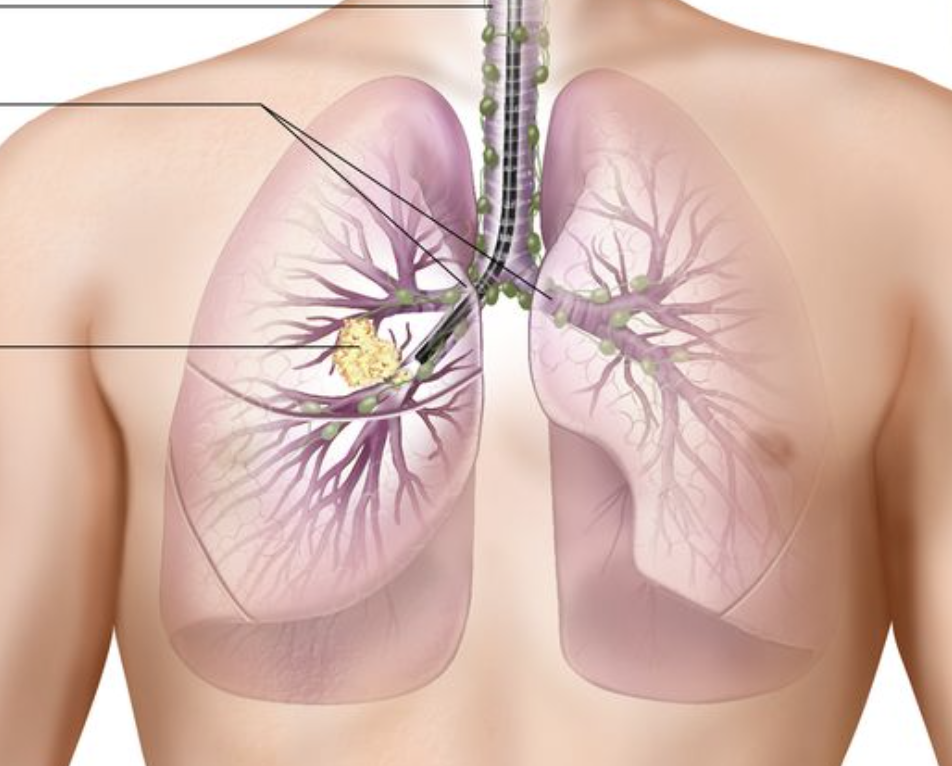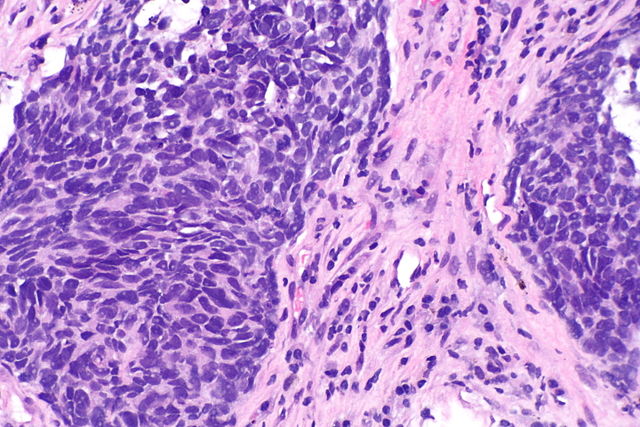By Dr. Anam Kamal
TROPION-Lung01: A randomized, phase-3 study of datopotamab deruxtecan (Dato-DXd; DS-1062) versus docetaxel in previously treated advanced or metastatic non-small cell lung cancer (NSCLC) without actionable genomic alterations (TROPION-Lung01)
The treatment options for patients with advanced/metastatic non-small cell carcinoma (NSCLC) who lack driver genomic alterations and progress after platinum-based chemotherapy and immunotherapy are limited. Results from a phase I trial have shown antitumor activity of datopotamab deruxtecan (Dato-DXd) in solid tumors, including pre-treated NSCLC regardless of TROP2 expression1. Dato-DXd is a novel antibody-drug conjugate consisting of a humanized anti-TROP2 IgG1 monoclonal antibody attached to a topoisomerase I inhibitor payload via a tetrapeptide-based cleavable linker. The recommended dose is 6 mg/kg once every 3 weeks.
TROPION-Lung01, an open-label, phase 3 randomized study, evaluated Dato-DXd versus docetaxel (DTX) in patients with advanced/metastatic NSCLC without EGFR, ALK, or other actionable genomic alterations. Eligible patients had to be previously treated with platinum-based chemotherapy and a PD-(L)1 monoclonal antibody either in combination or sequentially with radiographic disease progression on or after the most recent therapy. Those with asymptomatic and stable/treated brain metastases were eligible. A total of 604 patients were randomized 1:1 to either receive Dato-DXd 6 mg/kg (n=299) or DTX 75 mg/m2 (n=305) intravenously on day 1 of each 3-week cycle. Randomization was stratified by histology (squamous vs nonsquamous), immunotherapy in last regimen (yes vs no), and region (US/Japan/Western Europe vs rest of world). The study was conducted at approximately 184 study sites globally. The dual primary endpoints were progression free survival (PFS) by BICR and overall survival (OS). Secondary outcome measures included PFS by investigator, objective response rate (ORR), duration of response (DOR) as well as safety and pharmacokinetics.
The median age was 64 years (range, 24-88). PFS was significantly improved in ITT populations with Dato-DXd over DTX (HR, 0.75; 95% CI, 0.62-0.91; P=.004; median, 4.4 vs 3.7 mo). The interim mOS in ITT population was 12.4 months (95% CI 10.8-14.8) in the Dato-DXd arm and 11.0 months (95% CI 9.8-12.5) in patients who received DTX with a HR of 0.90 (0.72-1.13) favoring Dato-DXd. The ORRs were 26.4% (Dato-DXd) and 12.8% (DTX), with median DORs of 7.1 and 5.6 mo. Longer median PFS was observed in the prespecified non-squamous histology subgroup (NSQ; 5.6 vs 3.7 mo). Median treatment duration was 4.2 mo (range, 0.7-18.3 mo) for Dato-DXd and 2.8 mo (range, 0.7-18.9 mo) for DTX. The most common treatment-emergent adverse events (TEAEs) seen with Dato-DXd were stomatitis (49.2%, mostly grade 1/2) and nausea (37%). Adjudicated drug-related interstitial lung disease grade >3 occurred in 3.4% of pts with Dato-DXd versus 1.4% with DTX. Fewer drug-related grade >3 TEAEs and AEs leading to dose reduction or discontinuation were seen with Dato-DXd versus DTX.
Dato-DXd showed promising antitumor activity and a manageable safety profile in heavily pretreated patients with advanced NSCLC specially in non-squamous histology. Dato-DXd is the first antibody-drug conjugate to demonstrate a statistically significant improvement in PFS over docetaxel in previously treated patients with locally advanced or metastatic NSCLC. The interim OS findings favor Dato-DXd, and the trial is continuing to final analysis.
REFERENCES
- DOI: 10.1200/JCO.23.00059 Journal of Clinical Oncology41, no. 29 (October 10, 2023) 4678-4687








